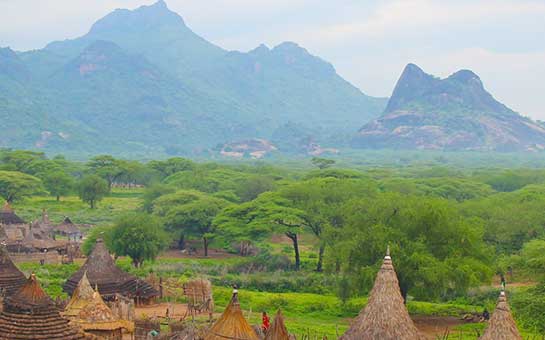The Republic of South Sudan is located in East-Central Africa. The country encompasses the swamp region of Sudd, which is formed by the White Nile River. Sudan was once under the rule of Egypt and gained independence in 1956, but after several bouts of civil unrest, South Sudan was formed in 2011.
South Sudan is one of the youngest countries in the world. The native citizens are mostly the Nilotic people. Apart from Christianity, many other traditional faiths and religions are followed here.
Many ethnic groups like the Dinka, Nuer, and Zande live here. South Sudan also boasts a rich ecosystem in its swamp region. A visit to this country will give you a chance to explore the numerous treasures that many in the world are still unaware of. But before departing, you should purchase travel medical insurance as protection against any unexpected accidents, illnesses, or injuries that might occur during the trip.
South Sudan Travel Medical Insurance for International Travelers – FAQs
Travel medical insurance can provide coverage if you suffer an illness or are injured in a foreign country during your visit.
Do I need travel medical insurance for South Sudan?
You aren’t legally required to get travel medical insurance before arriving in South Sudan. However, since there are some risks involved, it would be prudent of you to get health insurance.
Why buy travel medical insurance for South Sudan?
South Sudan can get volatile at times, and the weather conditions can also be extreme. You could fall sick, get injured in a landmine explosion, or just suffer a fall during a hiking expedition.
South Sudan travel medical insurance can cover the cost of such medical emergencies. It could also cover the cost of medical evacuation, if the term is included under the policy, in case you have to be shifted elsewhere for better medical care.
Things to Do for Travelers in South Sudan
You must try out these activities when you are in South Sudan.
- Witness a wrestling match in Bor: Wrestling is a very popular sport in South Sudan, and many wrestling champions come here from all over the country. There are local stadiums where renowned wrestlers fight for glory. There are also matches at night under the floodlights that whip the crowds into a frenzy as they support their champions. It provides a great rush of adrenaline to watch the matches.
- Exploring Wau: The colonial history of South Sudan can be best witnessed in Wau, which is also the second-largest city in the country. There are many colonial buildings here, and the cathedral built in 1913 is a special attraction. There is only one rail line in South Sudan, and from here, you can travel to Babanosa in Sudan. Several tribes live here as well, making this city ethnically rich.
- Cruise along the Sudd in a canoe: Sudd is a vast inland sea that was formed by the Nile over centuries. The vegetation along its banks is dense, and they harbor all sorts of exotic and rare birds. The wetlands are also home to hippos and even alligators. You can take a canoe along the shoreline and explore the area from a new perspective.
- Hiking in Imatong Mountains: The trails along the mountains have only recently opened in the past couple of years, but they have already become popular among adventure seekers. The trails reveal spectacular sights at every turn, and once you reach the peaks in the range, you will be greeted with an amazing vista of the landscape looking into Uganda. You can also encounter elephants and leopards in their natural habitat.
- Animal Migration at Boma National Park: It is claimed that the world’s largest wildebeest migration happens here, not in the Serengeti. Among other animals, you can also see the white-eared kob and the tiang antelope. They cross the vast fields in an earthshaking gallop. You will also meet giraffes, cheetahs, elephants, and lions here.
Travel Risks for International Travelers in South Sudan
You should be careful about the following aspects on your trip to South Sudan.
- Extreme weather: The climate oscillates between extremes in South Sudan, so it can be very hot and dry at times while at others it suffers from floods. Flash floods are common during monsoon season, between July and November. Summer temperatures can go up to 50 degrees Celsius (122 degrees Fahrenheit).
- Exploring remote areas explosions: In South Sudan, always stick to prescribed city roads. Roads outside the main city, and some even within the city, have landmines to stop intruders. Do not take stray paths, and hire a licensed local guide to take you around.
- Diseases: Disease outbreak in South Sudan is especially common after a flood, when water and food scarcity are highest and medical services suffer a setback. You should be careful of mosquito-borne diseases and water-borne diseases.
Before You Travel to South Sudan…
- Stay updated about local news, and see if there have been any landmine explosions or civil unrest in the recent past.
- Get vaccinated for yellow fever, malaria, dengue, cholera, typhoid, and hepatitis A and B, among others.
- Carry enough purification tablets and portable water to avoid drinking unfiltered water.
- Always drive around with licensed drivers and car rentals, and make your bookings before your visit. Unlicensed drivers are often associated with kidnappers and might aid in kidnappings.
